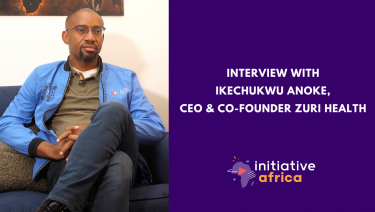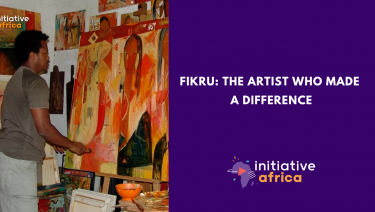The piece still missing in Africa’s CSR solutions

By Sebastian Woller
African organizations are stuck in a rut. Resources and human efforts are wasted, the youth lack career prospects, the old retire without pensions, and women feel the sting of workplace discrimination. To be sure, these problems are not only confined to profit-seeking organizations. They are found in the likes of hospitals and schools as well.
Indeed, African organizations require major changes. These changes, I maintain, cannot be achieved by Corporate Social Responsibility (CSR) alone. Instead, the vehicle that will lead Africa to a profound transformation in values, economic behaviour, and quality of life is technology. This technology is called management (the definition of technology is the application of knowledge to human work).
Management: a vehicle of change
“While there is no shortage of talent in Africa, there is a critical lack of business and management skills” – African Management Initiative
For the average African worker, CSR appears as a heavy dressing of humanitarian rhetoric or a pleasant but unessential relish. What African workers require is a practice and discipline that can lead to immediate results:
- African workers need “employees.” In Nigeria, Africa’s most populous country, employment is ambiguous, unorganized, and unprotected. Informal workers make up 80% of the workforce (source: The Economist). Management is needed to create strong contractual relationships and morally decisive realms, in which people can earn a stable income and work together – through strictly impersonal objectives – to contribute to a meaningful purpose.
- African workers need higher wages. To be clear, wages need to increase by at least 100%. In the Democratic Republic of Congo (DRC), the second-largest country in Africa by size, 70% of the population lives on less than $1.90 a day and the average worker earns less than $400 a year (source: World Bank; Business Insider). Management is needed to systematically study tasks and to ensure that the right tools are being integrated into organizations. It is also needed to increase productivity, as this enables workers to receive more benefits for their work.
- African workers need a scientific selection process. Organizations need to employ talent, diversity, and competition – wherever possible. In Ethiopia, the only country on the continent that has never been colonized, state-owned monopolies still undermine free competition and stifle creativity. This is the case in the telecommunications sector, for example (source: Financial Times). Government officials and policymakers are ill-suited to decide who or what should grow or satisfy the needs, aspirations, and expectations of tomorrow’s business world. This is the task of management.
CSR is the consequence of management
“CSR is best understood as a niche rather than a generic strategy” – Brookings
Although CSR is used interchangeably with management perhaps, it is as different from it as cement is from concrete. For more than 100 years, the best and brightest have been talking about “The Social Responsibilities of Business,” beginning with industrialists like Shibusawa Eiichi (Japan), Seebohm Rowntree (UK), and Walther Rathenau (Germany). However, not until the conception of “Scientific Management” in the 1900s as well as the “management boom” in the 1950s were leaders able to incorporate CSR solutions in their management strategies for social and environmental issues (recommended: Harvard Business Review).
All told, Management is a powerful knowledge that can help African workers and organizations overcome struggles, environmental catastrophes, and traumatic events. It is unique because it draws together knowledge from different disciplines, including psychology, philosophy, and history, to make societies more affluent and sustainable.
African organizations need the application of modern management above everything else if they seek a more social, more responsible, and more prosperous future.
See also

Interview with Ikechukwu Anoke, CEO & co-founder Zuri health
With one doctor for every 10,000 people in Africa, and 65% of mobile users without internet access, ZuriHealth is tackling the continent’s biggest healthcare challenges head-on. In this interview, CEO Ikechukwu Anoke shares how this virtual hospital platform — accessible via SMS, smartphone, or basic mobile — is breaking down barriers to care, from affordability to geographical distance. Born out of a personal story, ZuriHealth now operates in 9 countries and aims to reach all 55 African nations within 3 years.

Shea Butter Skincare — Made in Burkina Faso
In Ouagadougou, Odiss Cosmétiques is transforming damaged skin and outdated beauty standards using one powerful tool: locally sourced, natural ingredients like shea butter, neem, and baobab oil. Founded by Denise Odette Konseiga, a former pharmacy assistant, Odiss has grown into a certified organic brand that now employs 17 staff and supports over 300 women across shea cooperatives. From Burkina to Belgium and beyond, the brand is making waves. In a market long dominated by imports, Odiss is proving that African-made skincare can be both ethical and effective. Journalist: Sonia Kocty

Interview with Trésor Ebamu Fakana, political analyst
In the Democratic Republic of Congo, organ transplantation remains largely unregulated and unpracticed. Political analyst and anti-human trafficking expert Trésor Ebamu Fankana calls for urgent public debate and legal reform to address the ethical, medical, and legal challenges linked to organ donation and trafficking. In this interview, he discusses his latest book Let’s Talk About It and warns about the dangers of inaction in a region where insecurity, poverty, and legal loopholes create fertile ground for exploitation. Journalist: Alexandra Vépierre

The Artist Who Made a Difference
From his first exhibition in 1995 to over 30 solo shows across Europe and North America, Ethiopian painter Fikru Gebremariam has carved out a singular path. His latest collection — exhibited at the Alliance Ethio-Française in Addis Ababa — marks a bold new chapter: an embrace of abstract expressionism rooted in African soil. In this portrait, Fikru reflects on his artistic evolution, his rejection of labels, and the subconscious forces that shape his work. Art historians, curators and fellow artists explore how his life, heritage, and travels converge on canvas. Journalist: Tefera Ghedamu